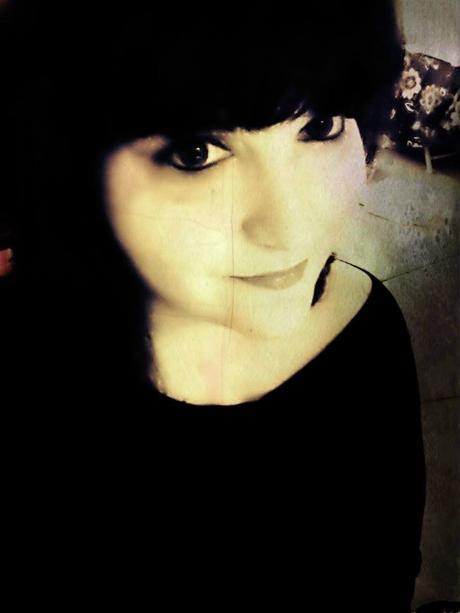
 We're delighted to once again be hosting a stop on a 4WillsPublishing blog tour for #RRBC member Lisa Mauro! Lisa is the author of The Place We Went to Yesterday and is sharing an excerpt today.
We're delighted to once again be hosting a stop on a 4WillsPublishing blog tour for #RRBC member Lisa Mauro! Lisa is the author of The Place We Went to Yesterday and is sharing an excerpt today.
Excerpt: The Place We Went to Yesterday
I'd like to thank today's host and 4Wills Publishing for organizing this amazing opportunity. I hope you all enjoy the tour! Today I'd like to share an excerpt of The Place We Went to Yesterday. Chapter 2It always starts out the same. I stand on the landing of the stairs and look down. I don't see it coming, but feel a hard shove behind me. Then, in slow motion, I am falling. It never feels slow, but when I stand outside myself, it seems like it takes forever before I can feel the ground beneath me again. Where I had been on my feet, I am now on my side. I can barely breathe, but I know it's best if I just lay there-playing dead-the way my neighbor's dog used to do.

After that, everything changes. Sometimes I stay on the floor, waiting in silence. When this is the trajectory of the dream, my sister Maria typically shows up and prods me with her shoe. I feel it dig into my ribs and my nose, and feel the pressure on my hair. I hear her cruel laugh, and know how much she despises me, and it's never worse here than in real life.
At other times, I wait until he's gone, and then I run out the door. Even though I know my way through the neighborhood, it's always a maze and the streets shift around me, leaving me confused. I look for familiarity, though I never find it. Signs have changed. Lights have moved. Even the fire hydrants make no logical sense.
My mother never makes an appearance at times like these, but I wouldn't expect her to. This is just as well, because her eyes resemble a possum's. I've never seen one in real life, but I once watched a documentary in science class and their beady red eyes looked harsh as they moved through their environment. I was surprised that they were ever alive. I had, up to that point, only heard them referred to as 'road kill'. I related to them, because I felt exactly the same.
I'd wake up from these nightmares and stand in front of the mirror examining my face. I expected gouged out eyes-hollowed out eye sockets-and marks from the soles of Maria's shoe on my cheeks. Instead, I found tears. That stopped by the time I was nine, because I realized that it changed nothing.
"Get out of the bathroom, Ella!" Maria never spoke. Everything that came from her mouth was yelled and more often than not, her fists controlled the situation.
"I'm not finished. Just wait."
"You've been in there for ten minutes. You're not the only one that lives here, you selfish bitch." I turned on the faucets while she continued to bang on the door, and made noises that sounded like I was washing my face or brushing my teeth, or rinsing my hands, but in reality, I just continued staring into the mirror.
I was greeted with a face full of spit as soon as I emerged, and this happened every single time, without fail. I was convinced she just stood there the entire time, waiting to hear my fingers on the lock, while she sucked the saliva into her mouth. It didn't matter what time I got up to get ready for school, because this had become a daily routine.
When it first began, years ago, I ran to my mother and cried.
"Toughen up," she said, with an indifferent look on her caramel face. "There are worse things to get in your eye than spit." She turned her back to me and continued doing whatever it was I had interrupted. That's how I felt for the entirety of my life . . . like an interruption.
Throughout my childhood, school was my respite. My teachers, hardened by years of handling rooms full of uncontrollable kids, appreciated the fact that I was never late and actually participated in class. To pass the time, I continuously copied my homework until the penmanship was perfect. I was always able to respond to: "What are you doing, Ella?" with "Homework."
I was bullied mercilessly, both at home and at school, because of my grades, and viewed as the favorite, which couldn't be further from the truth. Homework was demanded by my classmates so they could re-write my answers in their own way. When there were tests, kids fought to sit next to me so they could strain their necks to see my paper. I always felt surprised the teachers didn't rotate the tests so we didn't all receive the same one. When I suggested it, they scoffed at the notion and said they had enough work to do. I never wanted to be a teacher.
My mother didn't care about things like attendance or report cards. I don't remember her ever coming to an open house or making an appearance for parent-teacher conferences. "They're a waste of time," she would say, "I dunno who you think you are, but you're not gonna get anywhere anyway, so you might as well stay humble." Her proud Puerto Rican accent had slightly diminished over the years, but her lack of grammar had not.
When Maria wanted help with something, she would be kind. Well, truthfully, her demeanor would be kind, but I could still see the hate in her eyes:
"Can you help me with this?" she asked sweetly, as she held out a homework assignment. As always, when I tried to help her with it, she raised an exasperated hand in the air and said, "Yeah, I don't care. Just let me know when it's done." In the beginning, I did it in the hopes it would make her realize we were in the same situation, and that there was strength in numbers. When I finally accepted that she was incapable of such reasoning, I gave her the wrong answers.
One day, she came home in a fury and threw open the door to the bedroom we shared. She waved a piece of paper in my front of my face. "What the hell is this?" she screamed, only inches from my face. I tried to contain the smile spreading across my lips. "Oh, you think this is funny? Que una puta!" Her fists tightened and there was no use in fighting back. Despite her being eighteen months my junior, she learned how to win physical fights by the time she was a toddler. All of this was because 'she' failed an essay. She.
When Maria slammed the door behind her, I didn't cry. I'd developed an immunity to such things. Instead, I sat on the floor and laughed. With each passing moment, my laughter became louder. Finally, my mother walked into the room. "What the hell is wrong with you? You crazy?" Like always, she didn't actually sound concerned. "I'm in the kitchen watching mi telenovella and I can't even think. Your mouth is like a siren. Shut up."
At home, there were no such things as silence or privacy. There never had been, and as far as I could tell, there never would be. My mother didn't call us to dinner-we knew when it would be ready by the smells filling our small apartment. If you didn't get there on time it was likely to be completely gone. My sisters shoveled the food into their mouths as quickly as they could. As usual, they didn't even bother to leave the kitchen, preferring instead to stand over the sink to eat.
My mother fixed a plate, put it on a rickety wooden table, and ate slowly while she continued to watch her soap opera. In an attempt to find some sort of peace, I took my plate to my room. There I sat, book in one hand, fork in the other, while my plate rested on my thighs. I always forgot to bring my plate back to the kitchen, and for that my sisters nicknamed me puerca. Pig.
"Puerca," Yvette said to me one evening, "I'm tired of having to clean up after you. It's no wonder you're such a fat bitch. You eat on the floor and can't even be bothered to bring your plate back to the sink. You make all of us live in filth. It's disgusting. I'm the youngest and I'm doing all the work. What the fuck do you do?" Her cherubic face always became a deep shade of red throughout her tirades.
I picked up my plate and walked out of the room. My sisters spoke like that from the time they could string words together. We'd all been influenced by our parents, cousins, and neighbors, but I didn't absorb it the way they did. Words like that weren't contained in the pages of my books, so I ignored them. Besides, when you hear something so often, it's easy to tune out. This is a skill I had perfected, and for that, it was always assumed I was stupid, despite my grades.
"You're probably blowing Mr. Rivera," Maria accused. "Blowing him under his desk so he'll give you those grades." A simple shrug would only make her angrier, but sometimes I just didn't care. My life with them had taught me to be passive-aggressive. This was our 'normal'.


